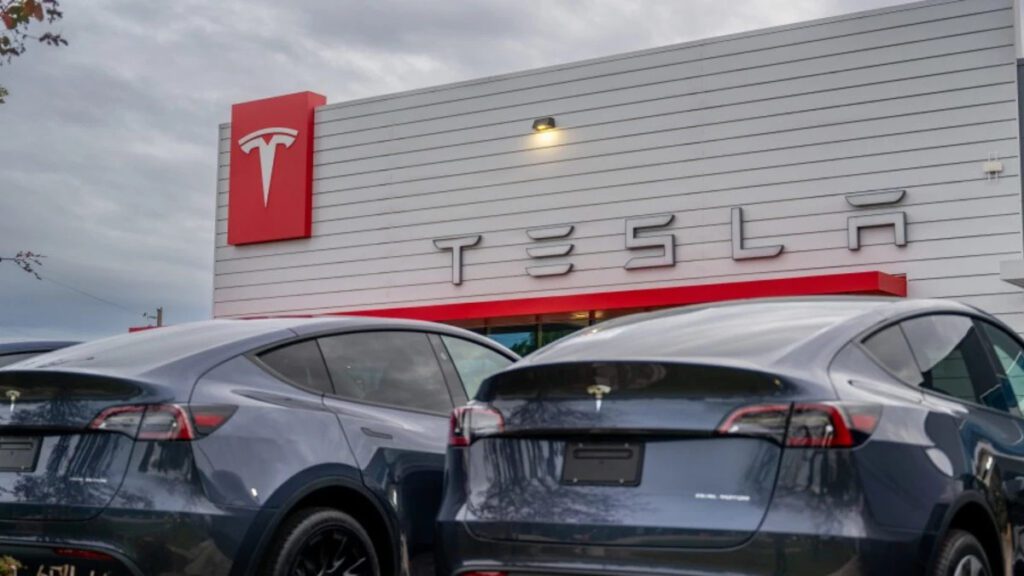The sub-$30,000 EV probably isn't going to happen anytime soon

Ford Mustang Mach-E electric vehicles on a dealer lotScott Olson/Getty Images
A lot has changed since Elon Musk first floated the idea of a $25,000 EV.
The average price paid for a new EV today is more than $56,000.
The used market is the best place to look for truly affordable EVs.
If you’re still waiting for a $25,000 electric vehicle, don’t hold your breath.
Since Tesla CEO Elon Musk first floated the idea of a $25,000 Tesla in 2018, EV makers have been striving to offer a sub-$30,000 price point. And they’re facing more pressure than ever to offer affordable options, as early EV adopters are gradually replaced by a wave of more practical, frugal buyers.
But six years after Musk’s promise, even he appears to be more wishy-washy on that exact price point for Tesla’s upcoming affordable model, and some industry experts say its time to rethink our definition of EV affordability.
To Musk’s credit, Tesla’s Model 3 now starts at $33,990, a price point that has pressured Tesla’s rivals to lower their own EV prices and has helped to make electric cars more affordable overall.
To put the sub-$30,000 price point for EVs into perspective, the average EV buyer paid $56,520 for their new battery-powered cars in July, according to Cox Automotive. That’s actually quite an improvement for affordability in the segment, considering the average price of a new EV peaked at about $66,000 in 2022.
Zooming out more generally, the average price paid for any new car is near $50,000, and vehicles transacting at or below $30,000 account for about 18% of new car sales, according to Jessica Caldwell, executive director of insights for Edmunds.
“It feels like we hold EVs to some kind of different standard,” Caldwell told BI, referring to the expectation that EVs should cost the same as gas-powered cars.
She said car prices have changed so much overall in the past few years that shoppers who haven’t been in the market since before the pandemic are likely to experience sticker shock regardless of what they’re buying.
“There’s a disconnect where people believe an EV should be $30,000 without realizing how hard that price point is to actually achieve across the market,” Caldwell said.
Still, some major automakers say they can achieve this ultra-affordable price point for some of their vehicles. Chevrolet’s Equinox EV is getting a base model later this year that will start under $28,000 (but only once you factor in federal tax credits).
Jeep has also promised to eventually build a $25,000 electric Renegade, though the brand hasn’t provided specifics on when that affordable SUV would arrive.
Another way to look at EV affordability
While the sticker price of an EV is unlikely to drop below $30,000 anytime soon, Caldwell said the automotive industry is finding other ways to make these cars more attainable for the average consumer.
Most car shoppers today are shopping based on monthly payments rather than the total price of the vehicle, leaving openings in leasing deals and financing incentives.
Caldwell said leases, which usually require smaller down payments and more affordable monthly payments, account for almost 70% of all new EV sales. That, coupled with access to tax credits and other deals, is helping to ease the initial cost of switching to an EV.
Car companies are also putting more cash on the hood for EVs, with EV incentives outpacing the industry average by 73% and discount packages accounting for around 12% of the car’s total price in July, according to Cox data.
Used EVs are a good alternative
Caldwell had another tip for EV bargain hunters: check the used lots.
EVs have been on the market long enough that a good supply of low-mileage options has hit the used market.
According to Edmunds’ research, the average age of a used EV is just under three years, compared to the average age of more than four years for all cars.
“If you want a $30,000 EV you can buy it — it’s just going to be used,” Caldwell said.



